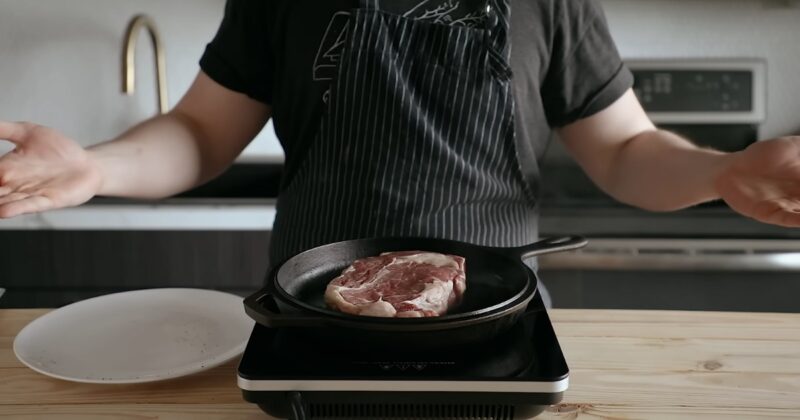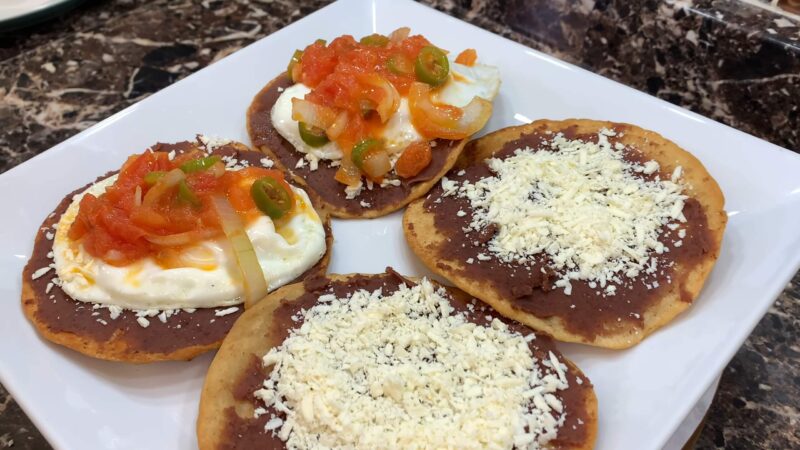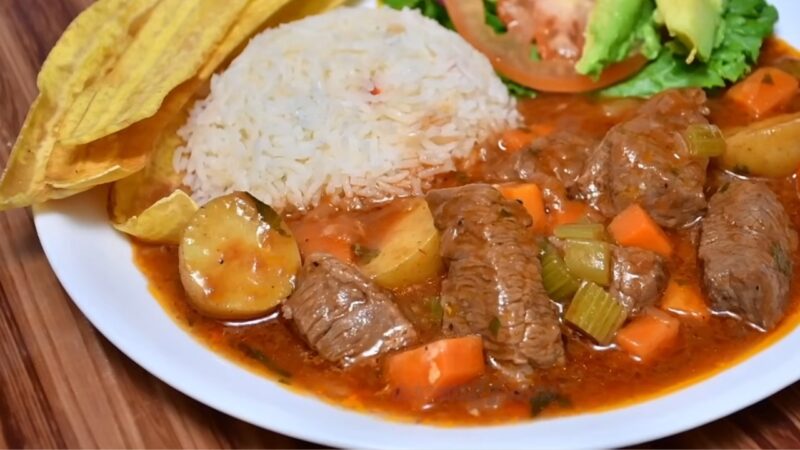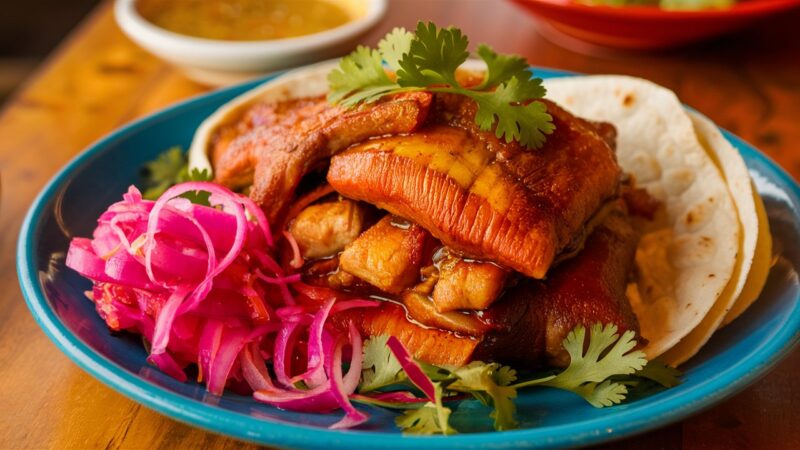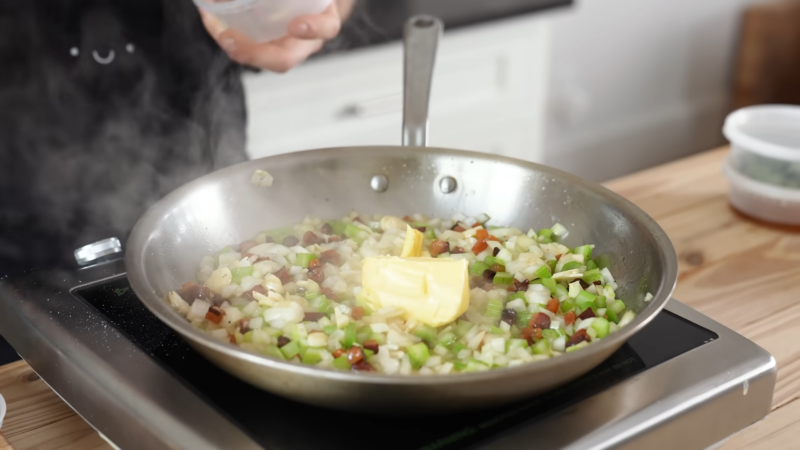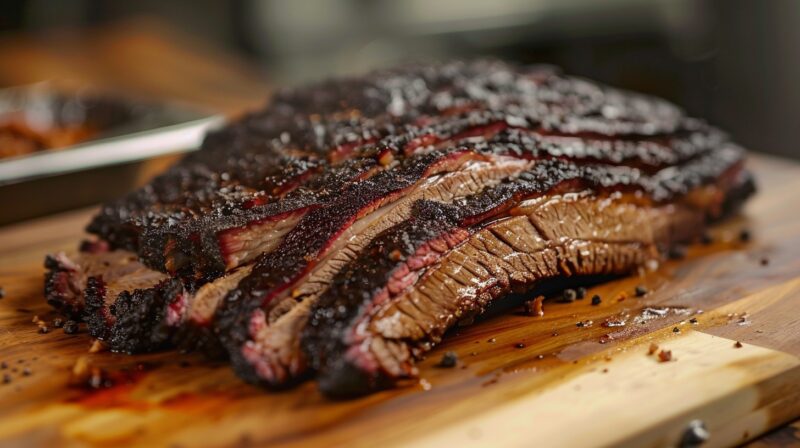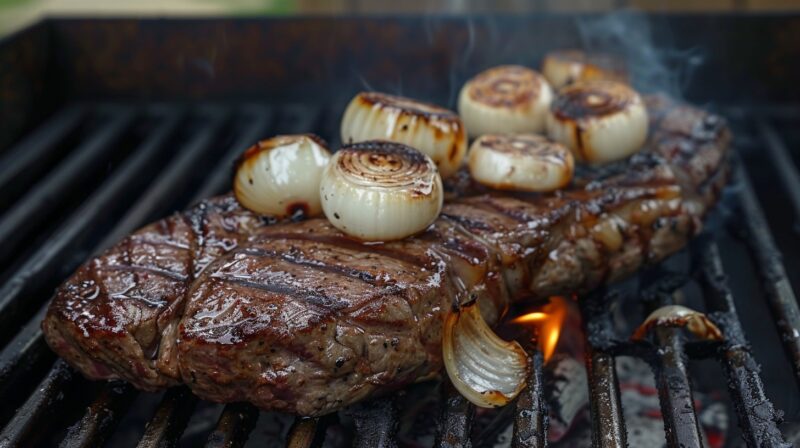I believe cooking is a deeply personal thing, no matter if you are professional or you just cook at home. We invest our time and effort to make a meal that will make our day better, right? I also believe that cooking shouldn’t be within boundaries that shouldn’t be crossed.
I love to be creative and this manifests in my cooking. That is why there are so many cooking tips I’ve heard in the last couple of decades I’ve found to be completely senseless. We’ve all heard those stories, and sometimes, sadly, we take them for granted.
10. Avoiding Soap on Cast Iron
“Never, under any circumstances, use soap on your cast iron,” is something I’ve heard countless times. Therefore, I treated my skillet like a fragile relic, fearing that a single drop of soap would strip it of its seasoning and soul.
Then, one day when I was at home, I decided to give it a try after all, washed it with soap. And guess what? It survived. I would even say that it was in an even better condition after. Also, thinking that it will somehow affect your food is a big NO.
Because modern soap isn’t the villain it’s made out to be, and a well-seasoned skillet can handle a little cleanup. My cast iron is still my kitchen workhorse, soap and all.
9. Adding Oil to Pasta Water
Adding oil to pasta water to prevent sticking is something I used to practice for many years. I love pasta and I cook it often. Like a faithful disciple of people who shared their knowledge with me, I poured olive oil into boiling water, hoping to achieve this.
Spoiler alert: the only thing it prevented was my sauce from clinging to the pasta. Turns out, all you need is a stir to make things happen. That’s it. No oil, no fuss.
8. Washing Chicken Before Cooking
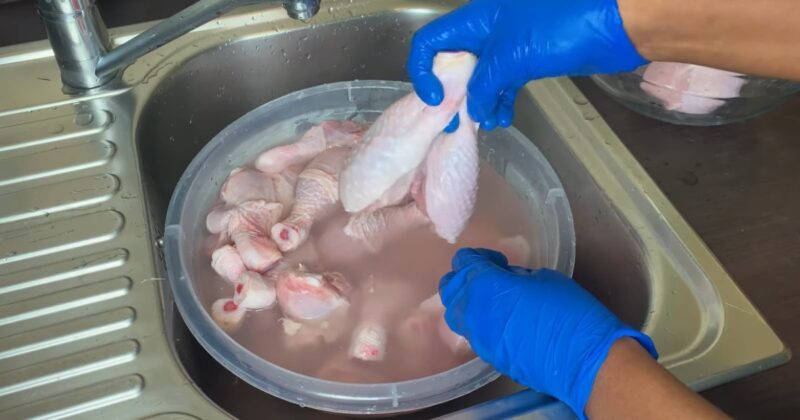
Washing chicken to remove the bacteria and the particles is something I remember my grandma doing. It made complete sense why she would do it. We simply didn’t know better back then. But when I thought about it seriously, it came to me that this is nonsense.
Not only does it not kill bacteria, but it also spreads them around your kitchen like confetti. What you should do instead? You should just use good, old-fashioned heat. By cooking your chicken properly those bacteria have zero chance to survive on the surface.
I did a little bit of digging, and I understand the importance of heat in this case.
It helps remove bacteria like:
- Campylobacter
- Salmonella
- Clostridium perfringens
Now that I’ve changed this practice, the results are clear: my kitchen is cleaner, my food is safer, and my mind is blown.
7. Mushrooms Absorb Water When Washed
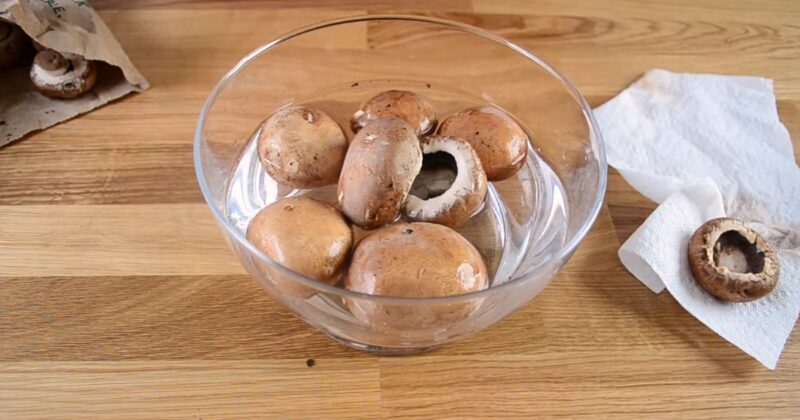
Putting mushrooms under a kitchen tap to wash them is some kind of mortal sin according to many people I used to work with. The reason? Well, they preached about how washing mushrooms will turn them into a sponge that will not have the original texture anymore.
We all know just how important texture is. Some months ago, I saw my friend washing them and I was surprised, I even warned him not to do it. He just looked at me for a couple of seconds, then he started to laugh. What came from the bowl were just ready-to-cook mushrooms.
I still laugh at how naive I was, and how simple checking this was from the start.
6. MSG is Harmful
MSG. Three letters that have been demonized more than any villain in a telenovela. “Avoid it like the plague.” “It will provide you with nothing but problems.” I’ve heard it all over the years. I didn’t give it much thought, I just obeyed, to be honest.
Well, after actually looking into it (and not just absorbing fear-mongering like a sponge), turns out MSG is not the monster under the bed. It’s just a flavor enhancer, folks. And guess what? No headaches, no third arm growing out of my forehead. Just delicious and safe dishes that will not harm anyone, I promise.
5. Swirling Water When Poaching Eggs
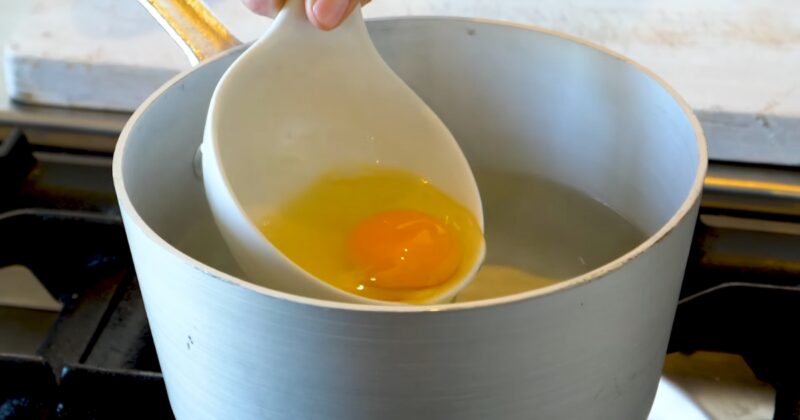
Probably the funniest thing I’ve believed is that swirling water should be used when poaching eggs. I can’t remember exactly who was the individual who told me this, but it kinda stuck for me for several years Some of my colleagues even addressed it as the vortex method.
“Swirl the water to create a whirlpool, then gently drop in the egg,” was the modus operandi. Well, the only magic was how consistently it produced egg blobs instead of poached eggs. The truth hit me like a runaway trolley: just gently slide the egg into simmering water. No swirls, no spells, just a perfectly poached egg.
4. Low Fat Equals Healthy
“Low fat” must mean healthy, right? Completely long. This is the diet industry’s favorite fairy tale. I fell for it, hook, line, and sinker, stocking my fridge with low-fat everything, only to realize I was essentially eating sugar with a side of more sugar.
While I have nothing against preparing dishes using low-fat ingredients, saying that they’re healthier because of that is simply wrong.
Fat isn’t the villain it’s made out to be. It’s like finding out the monster under your bed is just a pile of dirty laundry. After I decided to use more fat in my food, it simply tastes better, and I’m not perpetually hungry.
3. Searing Meat to Seal in Juices
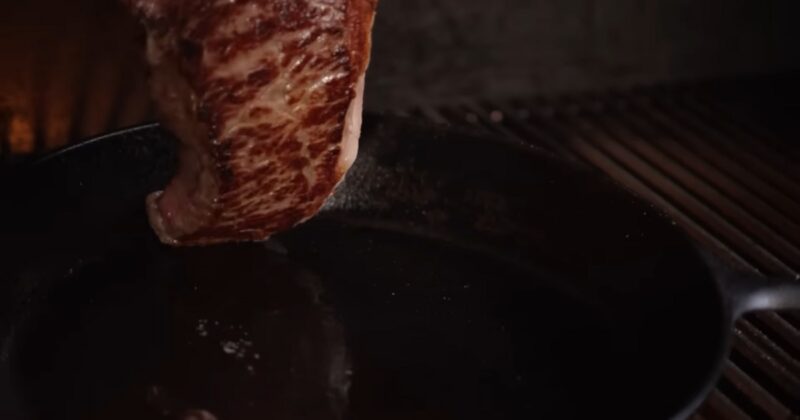
Searing meat to seal in juices is among the most ridiculous things I’ve ever heard. Some years ago, I worked in a restaurant where the owner insisted we should practice this for some reason. I complied, of course, but only to see it didn’t make any sense.
The claim is that searing meat helps to lock all the juices (flavors) in, keeping the piece as soft and juicy as possible. The whole claim is all smoke no fire. Not to mention that getting a piece that is as dry as Sahara is possible. So much for “sealing” in the juices.
The method you should utilize to prevent dryness is trying not to overcook your meat. Since I’ve stopped working at that restaurant, I have been speaking constantly about how searing is a major misconception that bears no fruit.
2. The Single Flip Steak Rule
The single-flip steak rule is probably the commonest obscure cooking tip out there. I think that people who invented this nonsense just wanted to brag about their cooking skills without providing any evidence for the claim. I was one of those who listened to this nonsense and struggled to make it right every single time.
Every barbecue felt like a high-stakes game of poker, where one wrong move could ruin everything. Then, I saw the light—or rather, the flip. At one moment, I saw the light when my colleague was flipping the steak frequently.
I didn’t ask him anything, I didn’t want to butt in, but it was clear to me that the result of his way of cooking was no worse. It was even better because the cooking was perfect on both ends. Since then, my steaks have never been better, and my stress levels have never been lower.
I found a confirmation of this on Serious Eats:
“Some folks claim that by flipping a steak repeatedly, you end up reducing the amount of browning that occurs, thus reducing flavor. And this can be true, but only in certain, very easily avoidable cases.”
1. Using Olive Oil Solely for Dressing
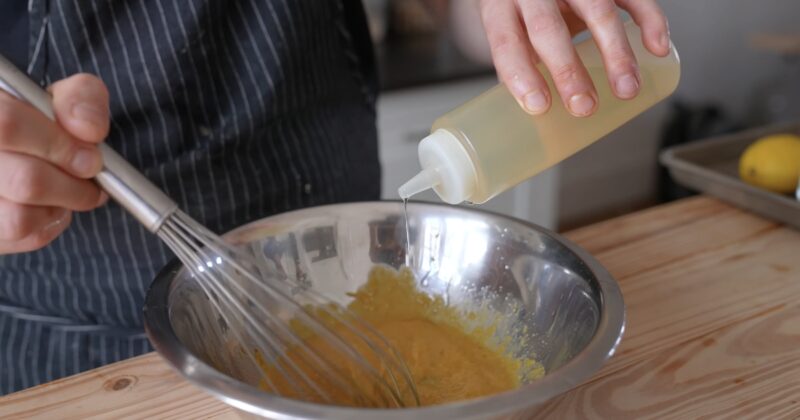
The thing I am most ashamed about is listening to advice on using olive oil solely for dressing not for cooking. It is a story that originated some years ago, and it told about how extra virgin oil shouldn’t be used for high temperatures because it has a low smoke point.
Once again, I didn’t give it much thought and I simply followed this unwritten rule. Imagine my embarrassment (and I am supposedly a chef with decades of experience under his belt) when I was schooled by a much younger colleague about just how big of a nonsense this is.
It wasn’t about pride, I am open to learning new things every day, but I was surprised how something so pointless can take root. Fortunately, my colleague was kind enough to remove this from my head, and I thank him for it.
Final Thoughts
As you can see, your experience and age don’t matter if you do not put your mind to it. These cooking tips are completely nonsense and I used to follow them for a while.
The idea of sharing these with you is to help you not to indulge in similar stories and waste your time for no good reason.

